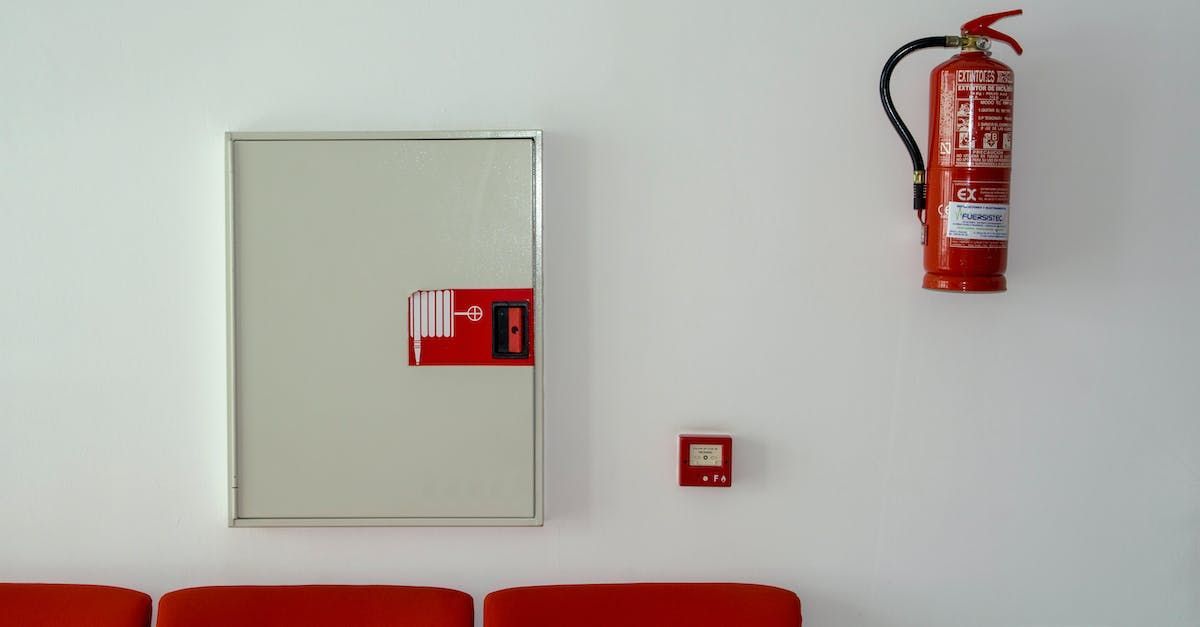Never Compromise on Fire Safety: Start Testing Now with Simple Steps
A fire alarm is one of the most crucial parts of protecting a business. This alarm is the first line of defense when an emergency erupts and a fire breaks out. These units alert everyone inside a facility that smoke was detected and contact the appropriate authorities, getting emergency response units and firefighters on the scene as soon as possible.
With that said, fire alarms aren't very effective if they aren't working correctly, so it is crucial that all businesses test and maintain their alarm systems frequently.
So, how often should your business test its fire alarms, and how will you know if they work up to code? Let's take a look.
Testing Your Fire Alarm
Businesses must perform frequent fire alarm testing to ensure their systems are running smoothly and can perform 100% if needed.
"According to NFPA standards, your fire alarm systems must be thoroughly inspected and tested weekly, monthly, quarterly, semi-annually, annually, every five years, and every 10 years. (vanguard-fire.com)
The NFPA standards might seem confusing if they aren't put into better context. Why would they bother saying to check every month or year if you have to test the fire alarms every week anyway, right?
Well, when you break down the type of testing that is required, the time frames become more clear.
Step 1: Weekly Inspections and Testing (In-House Staff)
Weekly inspections and testing can be performed by in-house staff; this inspection requires a thorough look at control equipment, including,
- Main power supply
- Interface equipment
- Fuses
- LEDs and lamps
- Control unit trouble signals
Weekly alarm testing requirements include:
- Test every battery in the alarm reporting systems.
- Test the generator (engine driven) in the alarms reporting systems.
Step 2: Monthly Inspections and Testing (In-House Staff)
The monthly inspections and testing are just as simple as weekly and can be conducted by the in-house staff as well. This inspection includes,
- Check batteries for leaking or corrosion
- Inspect the CO2 detector
- Check the DACR or Digital Alarm Communicator Receivers
Monthly alarm testing includes:
- Battery testing- Using the load voltage testing and 30-minute discharge test. For sealed lead-acid batteries, perform the top two tests and a charger test.
- Test each supervising receiver and signaling device, including:
- Digital alarm radio receiver (DARR)
- Two-way FR multiplex
- Digital alarm communication receiver (DACR)
- Radio alarm repeater station receiver (RARSR)
- Radio alarm supervising station receiver (RASSR)
- Two-way FR multiplex
Step 3: Quarterly Inspections and Testing (In-House Staff)
The quarterly inspections and testing are the last set of inspections and testing the in-house staff can conduct. These steps are a little more detailed and complex, meaning only knowledgeable staff should take on this task.
- Inspect each supervisory signal devices
- If applicable- Inspect the radiant energy fire detectors
- Test each battery located in the central station facilities. The tests should be conducted based on the battery material.
- Sealed lead-acid batteries require a 2-hour discharge test, charger test, and a load voltage test
- Test every supervisory and initiating signalling device.
- Test all of the off-premises transmission equipment.
As long as each test is conducted routinely, your business is as safe as possible, and you can rest assured you have done everything right.
Annual, Five Year, and Ten Year Inspections and Testing
Licensed fire protection specialists should conduct annual, five-year, and ten-year inspections and testing of business fire systems. The right security company provides businesses with skilled, experienced, and professional technicians with detailed checklists and plenty of knowledge of fire alarm systems.
These inspections should be carried out to ensure your entire fire alarm system is working up to code and will protect your entire facility and everything in it quickly and efficiently.
Invest in a ULC Fire Alarm System for Optimal Protection
Some companies are required to install a
ULC fire monitoring system and alarm. These systems are top-of-the-line against fires, from the first sign of smoke to the critical contact connection between the building and the fire company.
ULC fire and security alarm monitor systems ensure all your equipment is up to code, inspected, and tested regularly and provide optimal protection from sprinkler systems to communication devices, smoke detection, and so much more.
Final Thoughts
Although your business is legally allowed to conduct most fire alarm testing and inspections in-house, it would be best to request the assistance of a professional to ensure your assets are always protected and your system is always up to code.
At A1 Security Systems, our ULC fire alarm and monitoring products come with professional testing and inspections and will issue a certificate of compliance for the applicable province. Stay safe call us now.
Fire alarm panel monitoring is typically required by the authority having jurisdiction and/or local building/fire authority/codes and regulations. The specific requirements can vary depending on your location and the type of occupancy. It is essential to check with your local authorities or consult with A1
Security experts to determine when fire alarm panel monitoring is mandatory for your property.
In many cases, yes, a fire alarm system is required to be monitored. Fire alarm panel monitoring provides a crucial layer of safety by ensuring that authorities are alerted promptly in case of a fire emergency. This layer of safety works even if no one is present in the building. Compliance with local codes
and regulations often mandates fire alarm panel monitoring to protect lives and property effectively.
Fire alarm panel monitoring involves the continuous supervision of your fire alarm system by a ULC listed monitoring center. When your fire alarm system detects a fire, it sends a signal to the monitoring center. Trained operators at the center then verify the alarm and, if necessary, contact the appropriate authorities, such as the fire department, to respond to the emergency. This rapid response is crucial in minimizing damage and ensuring the safety of occupants.
The cost of fire alarm monitoring can vary depending on several factors, including the type of monitoring service, the size and complexity of your property, and your location. A1 Security can provide
customized pricing based on your specific needs and requirements. Contact us for a personalized quote, and we will work with you to find a cost-effective solution that meets your fire safety needs while staying within
your budget.
Contact
A1 Security Systems
phone
P: (905) 333-4566
A1 Security Systems
Security Solutions for a
Safer Community
Subscribe to our newsletter
Contact Us
We will get back to you as soon as possible.
Please try again later.


